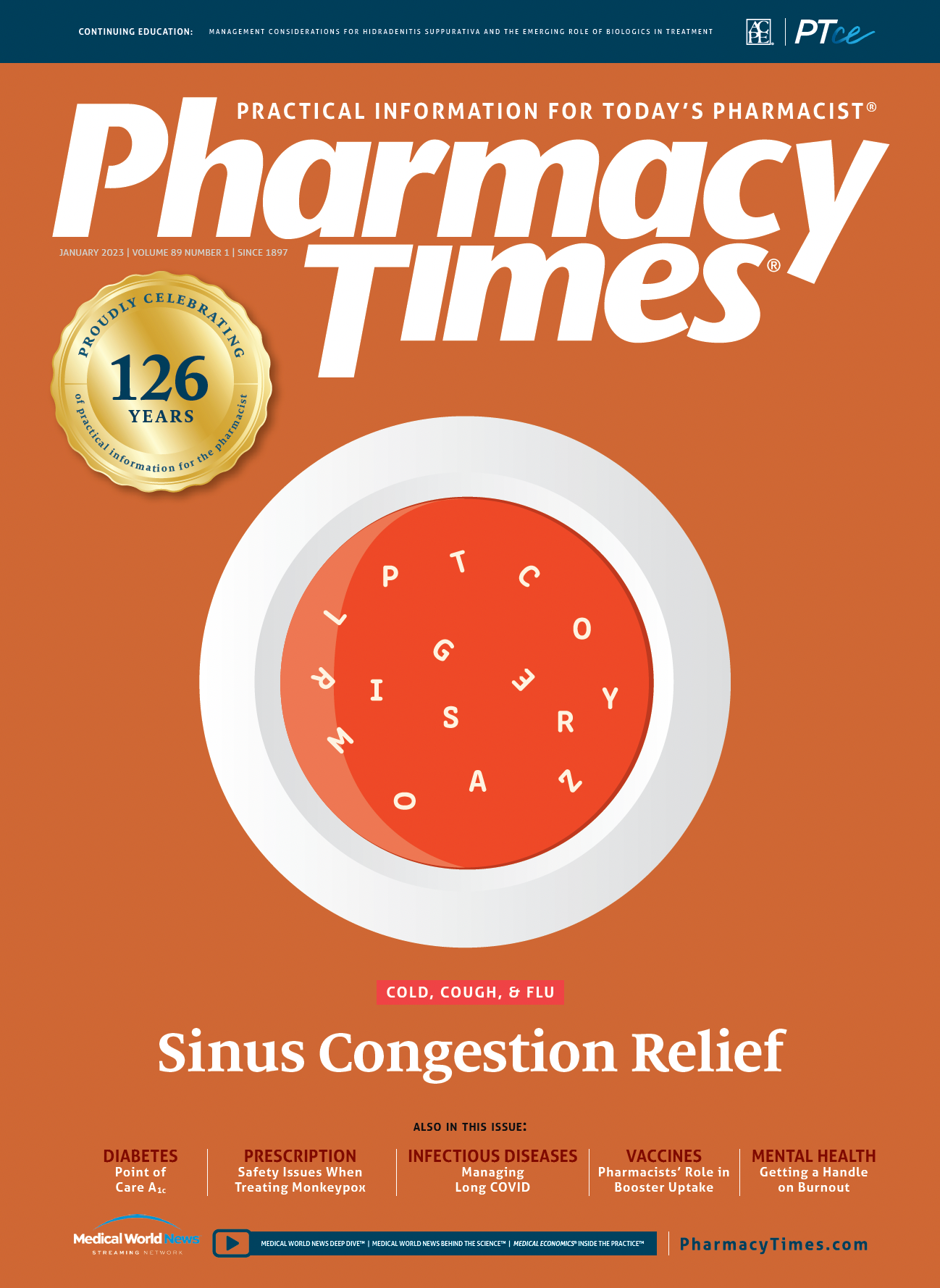Publication
Article
Pharmacy Times
Vivjoa From Mycovia Pharmaceuticals, Inc
Author(s):
The FDA approved a new azole antifungal for recurrent vulvovaginal candidiasis.
The FDA has approved oteseconazole capsules (Vivjoa; Mycovia Pharmaceuticals, Inc.), an azole antifungal indicated to reduce the incidence of recurrent vulvovaginal candidiasis (RVVC) in women with a history of RVVC who are not of reproductive potential.1
RVVC is defined as 3 or more symptomatic acute episodes of yeast infection in 12 months and includes symptoms such as vaginal burning, inflammation, itching, and irritation. The condition is estimated to affect 138 million women worldwide each year.2
Pharmacology and Pharmacokinetics
Vivjoa is an azole metalloenzyme inhibitor. It reaches peak plasma concentrations 5 to 10 hours after oral administration and displays a median terminal elimination half-life of approximately 138 days. Vivjoa does not undergo significant metabolism.1
Dosage and Administration
Vivjoa can be dosed alone or with fluconazole. The Vivjoa-only regimen consists of Vivjoa 600 mg orally on day 1, Vivjoa 450 mg orally on day 2, Vivjoa 150 mg orally on day 14, and once a week thereafter for 11 weeks. The combination regimen consists of fluconazole 150 mg orally on days 1, 4, and 7; Vivjoa 150 mg orally once daily on days 14 through 20; Vivjoa 150 mg orally on day 28; and once a week thereafter for 11 weeks. Vivjoa should be taken with food.1
Clinical Trials
The first VIOLET trial (NCT03562156) and the second VIOLET trial (NCT03561701) were double-blind, multicenter, multinational, placebo-controlled studies that evaluated the efficacy and safety of Vivjoa in 656 women with RVVC. Participants received fluconazole 150 mg orally on days 1, 4, and 7. If the acute VVC had resolved on day 14, participants were randomly assigned 2:1 to receive either Vivjoa 150 mg orally or a place-bo for 7 days, followed by 11 weekly doses. Vivjoa was found to be superior to the placebo in the proportion of patients with 1 or more culture-verified acute VVC episode through week 48 or who used medication to treat VVC during the maintenance phase through week 48.1
The third study evaluated the efficacy and safety of Vivjoa in 219 women with RVVC. The double-blind, multicenter, randomized ultraVIOLET trial (NCT03840616) compared Vivjoa with treatment with fluconazole and a placebo. Participants were randomly assigned 2:1 to receive either Vivjoa 600 mg orally on day 1 and Vivjoa 450 mg orally on day 2 or fluconazole 150 mg orally on days 1, 4, and 7. If the acute VVC had resolved on day 14, participants received either Vivjoa 150 mg orally weekly or a placebo weekly for 11 weeks. Vivjoa was found to be superior to treatment with fluconazole and a placebo in the proportion of participants with 1 or more culture-verified recurring acute VVC episodes during the maintenance phase, participants who experienced an unresolved VVC episode during the induction phase, and participants who used medication to treat VVC during the maintenance phase.1
Contraindications, Warnings, and Precautions
The use of Vivjoa is contraindicated during breastfeeding and pregnancy, in patients with a hypersensitivity to oteseconazole, and in women of reproductive potential.
Vivjoa may cause fetal harm, so patients should be advised of the potential risks to a fetus or breastfed infant. Because Vivjoa is a breast cancer resistance protein (BCRP) inhibitor, concomitant use of Vivjoa with BCRP substrates may increase the exposure of the BCRP substrates and the risk of adverse reactions associated with these agents. The BCRP substrate should be initiated at the lowest pos-sible starting dose, or a dose reduction should be considered; patients using this combination should be monitored for adverse reactions. The use of Vivjoa is not recommended in patients with severe renal impairment or end-stage renal disease, with or without dialysis. The medication should not be used in patients with moderate or severe hepatic impairment.1
The most frequently reported adverse reactions are headache and nausea.1
References
1. Vivjoa. Prescribing information. Mycovia Pharmaceuticals, Inc; 2022. Accessed September 27, 2022. https://vivjoa.com/pdf/VIVJOA-Full-Prescribing-Information.pdf
2. Mycovia Pharmaceuticals announces U.S. availability of Vivjoa (oteseconazole) capsules, the first and only FDA-approved medication for recurrent vulvovaginal candidiasis (chronic yeast infection). News release. Mycovia Pharmaceuticals Inc. July 18, 2022. Accessed September 27, 2022. https://mycovia.com/wp-content/uploads/2022/07/VIVJOA-US-Launch-Press-Release.pdf
About the Author
Monica Holmberg, PharmD, BCPS, is a pharmaicst in Phoenix, Arizona, and a Pharmacy Times® contributor.

Newsletter
Stay informed on drug updates, treatment guidelines, and pharmacy practice trends—subscribe to Pharmacy Times for weekly clinical insights.





